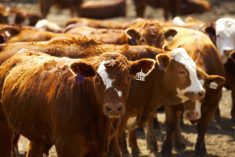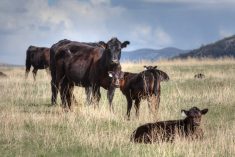Farmers awaiting new agricultural Crown lands regulations after months of suspended unit transfers and an uncertain regulatory future finally have some clarity.
In 2018 the province froze new lease applications and unit transfers during their rework of the Crown lands system and shifted grazing and forage leases to an open auction system rather than the previous points system.
Why it matters: Delays and freezes to new applications or transfers created frustration among farmers last year.
Read Also

Smart deworming for sheep starts with individual fecal egg counts
Fecal egg count tests are one step to managing dewormer resistance and managing sheep parasites on Canadian sheep farms to maintain flock health.
Crown Lands Act changes got royal assent Nov. 8, 2018, but farmers were left waiting on regulations to go along with the new system, and the freeze on new applications and unit transfers stayed in place. Some of those details emerged last week.
The province announced that rent on forage leases would be based on the price of beef cattle, “which is relevant for the significant majority of forage agricultural Crown land leases,” a release said. Cropping leases will still be based on assessed land value.
The province also announced a 15-year maximum lease term for forage leases, to, “provide a balance that is long enough for current leaseholders to invest in the land, but also provide others, such as new or young farmers, future opportunities to acquire use of the public asset.”
Manitoba Agriculture Minister Ralph Eichler tied the new regulations to increased transparency, accountability and reduced red tape.
The Keystone Agricultural Producers praised the policy’s impact on young farmers, something it had previously raised as a concern.
The Manitoba Beef Producers (MBP) also spoke on the news.
“MBP has appreciated the opportunity to participate in this extensive consultative process,” MBP president Tom Teichroeb said in the same release. “We hope the new regulations as a result of this process will allow these lands to be utilized in the most predictable and transparent manner possible, and MBP will continue to engage with the provincial government as these new regulations roll out, to ensure they are both effective and efficient for producers.”
Be sure to check out our next edition for further analysis on Crown land changes.



















